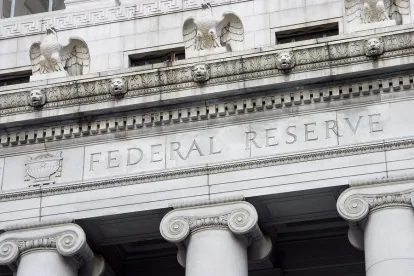On August 3, 2017, the Board of Governors of the Federal Reserve System (“Federal Reserve”) released a proposal regarding its supervisory expectations for the boards of directors of bank holding companies, savings and loan holding companies, state member banks, U.S. branches and agencies of foreign banks, and non-bank systemically important financial institutions supervised by the Federal Reserve (the “Proposal”).
In recent years, industry groups have catalogued the many specific requirements that the federal banking agencies’ regulations and guidance impose on the directors of banking organizations to review and approve day-to-day matters. The industry has called for the federal banking agencies to reevaluate their regulations and guidance so as to focus directors on their core responsibilities – i.e., broader strategic and oversight activities. Federal Reserve Governor Jerome Powell acknowledged these issues in April 2017, stating that “[w]e need to ensure that directors are not distracted from conducting their key functions by an overly detailed checklists of supervisory process requirements.”
The Proposal appears intended to accomplish this goal by: (1) distinguishing the Federal Reserve’s expectations for the board’s responsibilities from its expectations for management’s responsibilities, and (2) reducing the number of instances where guidance requires the board to review and/or approve specific matters.
The Federal Reserve’s Proposal
The Proposal has three components.
1. New Guidance on Board Expectations. The Proposal would adopt new supervisory guidance that addresses expectations for effective boards of bank holding companies and savings and loan holding companies with $50 billion or more in consolidated assets, and non-bank systemically important financial institutions (collectively, “large institutions”). The guidance would describe effective boards as those that:
(1) set clear, aligned, and consistent direction regarding the firm’s strategy and risk tolerance,
(2) actively manage information flow and board discussions,
(3) hold senior management accountable,
(4) support the independence and stature of independent risk management and internal audit, and
(5) maintain a capable board composition and governance structure.
Importantly, the proposed new guidance does not use the term “duty” and does not purport to prescribe or alter the fiduciary duties of directors under applicable state law. The Federal Reserve would use this guidance to assess boards of large institutions under the proposed Large Financial Institution (LFI) rating system that the Federal Reserve proposed concurrently with the Proposal – and such a specific assessment of Board effectiveness is new.
2. Revision or Rescission of Existing Guidance. The Proposal would revise or delete references to specific board responsibilities in existing supervisory guidance for Federal Reserve-regulated institutions of all sizes. Responsibilities targeted for revision or elimination, which are set forth in 27 SR letters preliminarily identified by the Federal Reserve, are those that do not relate to directors’ core responsibilities.
3. New Practice for Communicating Supervisory Findings. The Proposal would issue new guidance to replace SR letter 13-13/ CA letter 13-10, “Supervisory Considerations for the Communication of Supervisory Findings,” in order to limit the circumstances in which the Federal Reserve will communicate supervisory Matters Requiring Attention (MRAs) and Matters Requiring Immediate Attention (MRIAs) directly to the board. Under the proposed guidance, the Federal Reserve would direct most significant supervisory findings to senior management for corrective action, rather than to the board, unless those findings relate to governance issues implicating the board, or management has failed to take appropriate remedial action.
Given that the Proposal would introduce new supervisory expectations for boards, it remains to be seen whether, in practice, the Proposal would have the overall effect of reducing the regulatory burden on boards. Comments are due on the Federal Reserve’s Proposal on October 10, 2017.
Potential Future Steps to Clarify Board Expectations
Notably, the Proposal is only the beginning of a multi-phased effort to clarify regulatory expectations for boards of directors. The preamble to the Proposal indicates that the Federal Reserve intends to propose changes to its regulations to eliminate or scale back less important specific board responsibilities, and work with the Office of the Comptroller of the Currency (“OCC”) and the Federal Deposit Insurance Corporation (“FDIC”) to amend interagency guidance.
Apart from participating in this future interagency initiative, the OCC and FDIC could stand to reevaluate their own guidance for boards of directors of depository institutions. When finalizing Heightened Standards for large OCC-regulated institutions in September 2014, the OCC recognized that directors of such institutions have a “strategic and oversight role,” not “managerial responsibilities.” However, the OCC later released guidance on Corporate and Risk Governance in July 2016 that appears to set forth much more prescriptive roles for directors of OCC-regulated institutions. The OCC’s 2016 guidance states that the board is “responsible for” matters such as compliance with restrictions on affiliate transactions, maintenance of effective BSA/AML controls, and safeguarding of customers’ nonpublic information – all of which have traditionally been considered responsibilities of management. The guidance potentially blurs the line between management and the board by imposing obligations on the board that relate to specific day-to-day compliance matters.
The OCC’s 2016 guidance also includes statements implying that directors of OCC-regulated institutions have fiduciary duties beyond the duties of care and loyalty owed to the institution and its shareholders under longstanding corporate governance principles. The guidance provides that “[t]he primary duty of a subsidiary bank’s board is to ensure the bank operates in a safe and sound manner.” Relatedly, while the FDIC has not addressed the topic in some time, it has outstanding guidance from 1992, which has never been cited by a court, that states that directors of a federally-insured depository institution have duties not only to the institution and its shareholders, but also to its creditors.
The OCC and FDIC never offered these guidance documents for public comment. A reevaluation of their guidance would be consistent with the President’s February 2017 Executive Order setting forth Core Principles for financial regulation.




 />i
/>i

